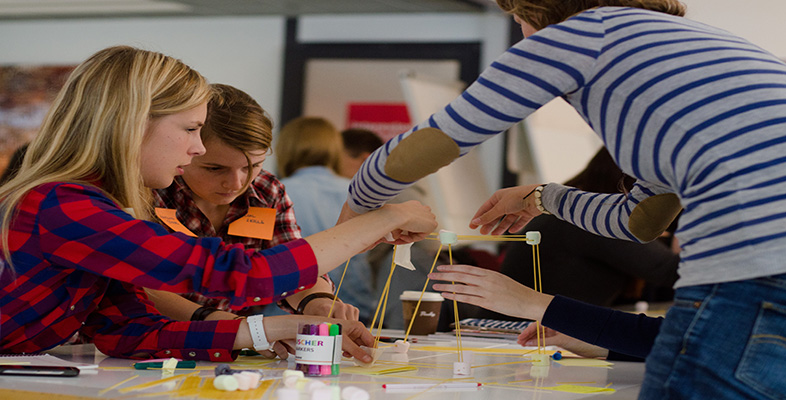2.1 Engaging with colleagues and other professionals
As you considered earlier, how you engage with parents and carers depends, to a large degree, on your underpinning views and beliefs. Similarly, how you engage with colleagues and other professionals is influenced by your underpinning views and beliefs. In this next activity, you will be asked to think about how you develop working relationships with others in your core and extended team.
Activity 5 Thinking about how you engage with colleagues and other professionals
The objective of this activity is for you to reflect on relationships with colleagues and other professionals.
Think about the other adults you interact with in your role as an early years practitioner. Draw a chart or diagram to show:
- the core team – those colleagues you work or communicate with on a daily or regular basis
- the wider team – those professionals from agencies and services you may come into contact with in a multi-agency context, but not necessarily on a daily basis
- your position in the team.
Now work through the following tasks, noting your responses:
- How would you describe your working relationships with the adults you have included in your chart or diagram? Note two examples of how you share information and skills with those in your core team.
- Note two examples of how you share information and skills with other professionals in the wider context.
- Think about how you initiate and sustain contact with other adults in a manner likely to promote trust and confidence in the relationship and the setting.
- Think of a situation where there may have been conflict in your core or wider team. What caused the conflict to occur? How was the situation resolved?
Now listen to the opening segment of the following audio sequence ‘Roles and provision’ and listen to Berni, a childminder, talking about her work. Berni is the first practitioner you hear in the sequence; you will not need to listen to the others for the purposes of this activity.
Transcript: Roles and provision
- What does Berni think are the benefits of working with others?
- Can you suggest two ways of developing or improving your working relationships with other professionals? This might include colleagues within or beyond your own setting.
Comment
While few would contest the value of teamwork, it is important to explore how perceptions of teamwork are reflected in the actual experience of belonging to a team and to be honest; some teams do find it difficult to work together. In this activity you identified the members of your core and wider teams and you thought about your working relationships. The nature of those relationships will largely depend on the extent to which you work cooperatively together.
Cooperation, in turn, will depend on the shared understandings in the team, and it will be influenced by the extent to which colleagues communicate assertively with each other. This is illustrated in the quotation below from Whalley (2019). While some people still enter the field with the assumption that the focus of the job is on autonomous work with children, the reality of these settings is that the increasingly multi-faceted work of the early childhood practitioner requires effective interaction with other adults as members of a multi-disciplinary team. When practitioners talk about the staff at their setting, the word ‘team’ is often used.
'With leadership…the ability to build and maintain effective relationships is pivotal… the relationships early childhood professionals build with the children, their families, the immediate and wider staff teams and with professionals from other disciplines. The (early childhood) leader seeks to act with others rather than assert power over others’
Your practice is dependent on your own views as an individual. It may be that these views change as you become more experienced or as a result of your professional development. A key aspect of teamwork is the extent to which all those involved in the team have shared views, values and beliefs. If you and the other members of your team are able to articulate your views, values and beliefs then you are more likely to develop shared understandings and to be an effective team.
